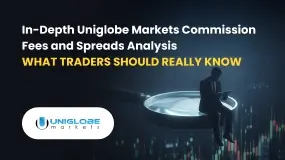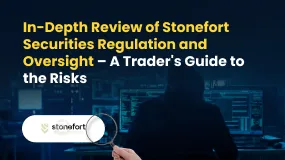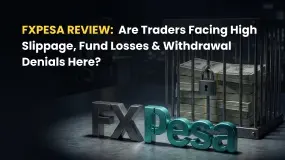简体中文
繁體中文
English
Pусский
日本語
ภาษาไทย
Tiếng Việt
Bahasa Indonesia
Español
हिन्दी
Filippiiniläinen
Français
Deutsch
Português
Türkçe
한국어
العربية
How Do Global Events Influence the Forex Market?
Abstract:Financial markets are dominated by the foreign exchange (FX) market, the biggest and busiest in the world. Every day, people from all over the globe conduct billions of dollars in foreign currency operations.

Financial markets are dominated by the foreign exchange (FX) market, the biggest and busiest in the world. Every day, people from all over the globe conduct billions of dollars in foreign currency operations. Because of the worldwide and interconnected nature of the forex market, a single event from anywhere in the world may have an instantaneous impact on exchange rates and currency values.
The following sections will go through some common worldwide events that may have an impact on the currency market.
The Influence of Politics on Currency Prices
A political election, which occurs in practically every country, may have a significant influence on a country's currency. A country's currency may experience more volatility as a result of traders' perceptions of political instability and uncertainty arising from upcoming elections. In most cases, forex traders would merely monitor pre-election polls to get an idea of what to anticipate and to see if there are any changes at the top. When the government changes, people's beliefs tend to change as well, and this usually results in a new approach to economic policy, which in turn affects the value of the currency.

Furthermore, political parties or people who are seen to be more financially prudent or interested in supporting economic development tend to increase the relative worth of a currency. For example, an incumbent perceived as “pro-economy” who is at risk of losing power may cause currency decreases due to concerns about future economic development and predictability.
Another critical scenario is an unexpected election. Unplanned elections, whether the result of a no-confidence vote, corruption scandals, or other circumstances, may devastate a currency. For example, incidents of civil unrest that result in demonstrations or work stoppages may create significant uncertainty in governments and exacerbate political instability. Foreign exchange markets are not happy when a dictatorship is ousted in favor of an elected administration that is more democratic and open to the world's economy. Short-term political turmoil tends to eclipse any positive outcomes from a new government and associated currencies often suffer losses.
A return to basic valuation concepts and components is expected. Currencies should settle at or near a rate reflecting the long-term economic growth potential of the nation concerned.

Natural disasters may have disastrous consequences for a nation. Earthquakes, floods, tornadoes, and hurricanes all hurt a country's inhabitants, morale, and infrastructure. Furthermore, such tragedies will affect a country's currency. The loss of life and damage to key manufacturing and distribution hubs, along with the uncertainty that natural catastrophes invariably bring, are all poor news for a currency.
When it comes to the effect of natural disasters, infrastructure destruction is also a major worry. Because fundamental infrastructure is the backbone of every economy, interruptions in such infrastructure may significantly restrict a region's economic production. Furthermore, the extra expenditures necessary to clean up and rebuild after a catastrophe deplete government and private spending that might have been utilized for more profitable initiatives rather than patching up a break in the value chain caused by infrastructure damage.
Add to that a likely fall in consumer spending as a result of economic uncertainty, as well as a potential loss of consumer confidence, and any economic positives might be transformed into economic disadvantages. Overall, a natural calamity will almost certainly hurt a country's currency.
The Impact of War on Currencies
A physical war may be considerably more detrimental to a country's economy than a currency war, in which nations intentionally aim to lower their currencies to benefit their home economies in global export commerce. War, like a natural calamity, has a terrible and pervasive effect. In the same way that natural disasters have a huge influence on a country's short-term economic viability, military damage to infrastructure costs citizens and governments billions of dollars.

History has demonstrated that war reconstruction efforts are often supported with cheap money as a consequence of reduced interest rates, which eventually reduce the value of the home currency. There is also a great deal of uncertainty around such wars in terms of future economic prospects and the health of impacted countries. As a result, countries that are actively at war have greater levels of currency volatility than those that are not.
Nonetheless, some economists feel that conflict might have a positive economic impact. War may jump-start a struggling economy, particularly its industrial sector, which is compelled to focus its resources on wartime output. For example, the United States' involvement in World War II in response to the Pearl Harbor assaults aided the country's recovery from the Great Depression. While some precedent may be found in the past, most people would agree that increasing the economy at the price of human lives is a horrible compromise.
In conclusion
Political unrest, natural catastrophes, and war are just a few examples of events that may have a significant impact on currency markets. The strength of a country's economy accounts for a significant percentage of a currency's value, therefore any unforeseen uncertainty in future economic predictions would normally work against a currency. While it is impossible to prepare for the unexpected in the forex market, a knowledgeable trader would include world events as the main signal in a thorough trading strategy.
To check out more news like this, visit WikiFX News Page (https://www.wikifx.com/en/news.html)

You can access all the news through your smartphone, download the WikiFX app for free on App Store and Google Play Store (https://www.wikifx.com/en/download.html)

Disclaimer:
The views in this article only represent the author's personal views, and do not constitute investment advice on this platform. This platform does not guarantee the accuracy, completeness and timeliness of the information in the article, and will not be liable for any loss caused by the use of or reliance on the information in the article.
Read more

mBank Exposed: Top Reasons Why Customers are Giving Thumbs Down to This Bank
Do you find mBank services too slow or unresponsive? Do you find your account getting blocked? Failing to access your account online due to several systemic glitches? Can’t perform the transactions on the mBank app? Do you also witness inappropriate stop-level trade execution by the financial services provider? You are not alone! Frustrated by these unfortunate circumstances, many of its clients have shared negative mBank reviews online. In this article, we have shared some of the reviews. Read on!

In-Depth Uniglobe Markets Commission Fees and Spreads Analysis – What Traders Should Really Know
For experienced traders, the cost of execution is a critical factor in broker selection. Low spreads, fair commissions, and transparent pricing can be the difference between a profitable and a losing strategy over the long term. This has led many to scrutinize the offerings of brokers like Uniglobe Markets, which presents a tiered account structure promising competitive conditions. However, a professional evaluation demands more than a surface-level look at marketing claims. It requires a deep, data-driven analysis of the real trading costs, set against the backdrop of the broker's operational integrity and safety. This comprehensive Uniglobe Markets commission fees and spreads analysis will deconstruct the broker's pricing model, examining its account types, typical spreads, commission policies, and potential ancillary costs. Using data primarily sourced from the global broker inquiry platform WikiFX, we will provide a clear-eyed view of the Uniglobe Markets spreads commissions prici

In-Depth Review of Stonefort Securities Regulation and Oversight – A Trader's Guide to the Risks
For experienced traders, the process of selecting a new broker transcends a simple comparison of spreads and leverage. It is a meticulous due diligence exercise where the integrity of the broker's regulatory framework is paramount. Stonefort Securities, a relatively new entrant in the crowded brokerage space, presents a complex and often contradictory profile. On one hand, it boasts a modern MT5 platform and a stream of positive user testimonials. On the other hand, it is shadowed by severe regulatory warnings that question the very foundation of its operations. This in-depth review focuses on the core issue for any long-term trader: Stonefort Securities regulation and oversight. We will dissect the broker's corporate structure, scrutinize its licensing claims, and analyze what the data implies for trader protection and fund security. For traders evaluating whether Stonefort Securities is a trustworthy partner, understanding these details is not just important—it is essential.

FXPesa Review: Are Traders Facing High Slippage, Fund Losses & Withdrawal Denials?
Do FXPesa support officials fail to pick up your calls when you raise fund withdrawal requests with the broker? But are these officials always open to you regarding fund deposits? Do you frequently spot slippage and stop-loss order execution errors on the FXPesa login? These issues are increasingly becoming common with this forex broker. Consequently, many traders have expressed their dissatisfaction with the broker online. In this FXPesa Review article, we have shared some of these complaints. Take a look!
WikiFX Broker
Latest News
In-Depth Uniglobe Markets Commission Fees and Spreads Analysis – What Traders Should Really Know
WikiFX's New Evaluation of ATM Capital LTD: Does its License Protect the Arab Investor?
Is Axi Legit? A Data-Driven Analysis of Its Regulatory Standing and Trader Feedback
How a Fake Moomoo Ad Led to the “New Dream Voyage 5” Scam
FXPesa Review: Are Traders Facing High Slippage, Fund Losses & Withdrawal Denials?
Trive Investigation: High Score, Hidden Risk - The Profit Paradox
Bessent believes there won't be a recession in 2026 but says some sectors are challenged
Is GGCC Legit? A Data-Driven Analysis for Experienced Traders
Young Singaporean Trader Grew USD 52 into a USD 107,700 Portfolio
mBank Exposed: Top Reasons Why Customers are Giving Thumbs Down to This Bank
Currency Calculator




